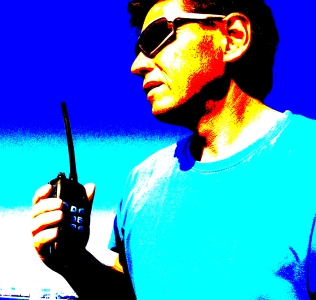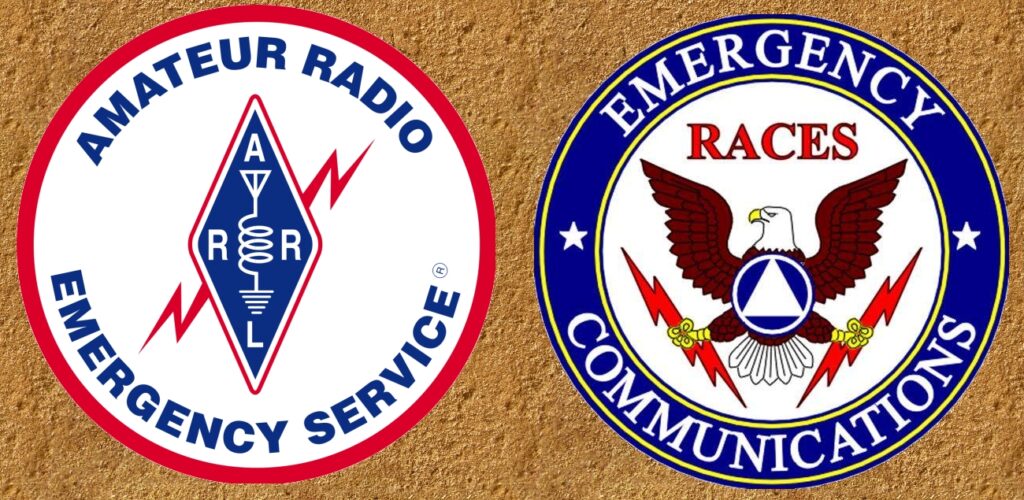
What is ARES?
The Amateur Radio Emergency Service (ARES) is a volunteer group of trained amateur radio operator volunteers organized to assist in public service and emergency communications, and is sponsored by the American Radio Relay League and the Radio Amateurs of Canada.
The Amateur Radio Emergency Service® (and its predecessor, the Amateur Radio Emergency Corps) consists of licensed radio amateurs, often called “Ham” operators, who have voluntarily registered their qualifications and equipment, for communications duty in service to the public when disaster strikes. Because landline telephones, cell phone systems, and public service radio systems can be damaged or overloaded, communication failures have been a defining part of natural disasters and even some human-generated events. And since ARES members maintain equipment to operate communications “off grid” and do not rely on the public service communications infrastructure, they are able to provide a means of communication to aid the public “when all else fails”.
ARES members in the US and Canada have responded to numerous local and regional disasters since the 1930s, including the September 11 attacks that occurred in New York City in 2001, and the category 5 storms Hurricane Katrina and Hurricane Michael. During the Katrina event, more than one thousand ARES volunteers assisted in the aftermath and provided communications for the American Red Cross, The Salvation Army, and other individuals related to the relief effort. After Katrina, the Hancock County, Mississippi, had lost all contact with the outside world, except through ARES operators who served as 911 dispatchers and message relayers. ARES also deployed to provide vital communications for the 2003 North America blackout that covered a wide geographical area of North America, including Cleveland, Detroit, and New York City. This was not the first time that amateur radio operators assisted during a blackout in New York City – on July 13, 1977 a lightning strike caused a city wide power outage that ARES members aided public agencies, as well. A related function that many ARES members participate in is SKYWARN, an organization run by the National Weather Service, to monitor and report on severe weather events in order to warn the public. Many times, that Tornado, Flood, or Severe Thunderstorm Warning you heard on the TV or radio was the direct result of volunteer ARES members and other Amateur Radio operators in the SKYWARN network, calling in to a NWS office with a warning report.
But spotting tornadoes, helping in disaster relief, or other catastrophic events is not the only thing that ARES does in support of the public. All across the country, on an almost daily basis, community based events are occurring like marathons, public concerts, and anything else that require monitoring of participants for crowd control, medical emergencies, lost children, and a variety of other things that can go wrong or just basic logistic needs. Such events often rely on volunteers for these functions, and ARES volunteers step in to fill this need, providing radio coordination and support to report needs and problems to Event officials. Chances are that individual who called in an ambulance for an injured marathon runner or reported a lost child at an outdoor concert may have been an ARES volunteer.
The Amateur Radio Emergency Service (ARES) is always looking for volunteers to fill this vital need for our communities, and as government budgets become ever more stretched and services get cut back, volunteering becomes that much more important. The only requirements to join ARES are a willingness to serve and a valid amateur radio license. Local Radio clubs often hold classes to teach you all that is needed in order to get your own Amateur Radio licence from the FCC, and to open up a hobby to you – at any age – that can provide everything from peace of mind when you have no cellphone service, to social interaction with people all over the world (as well as on the International Space Station, which is equipped with Ham Radio equipment), to being a volunteer who can directly benefit your community.

